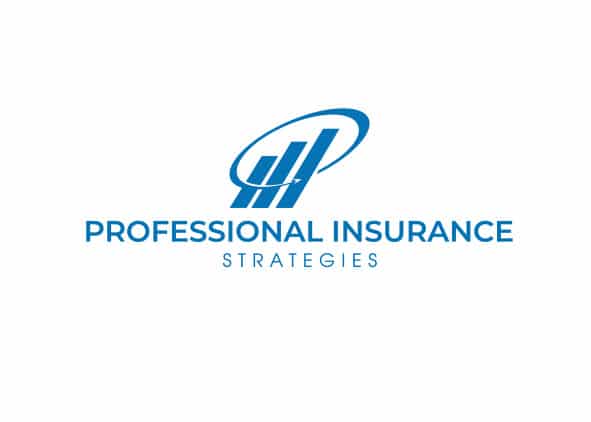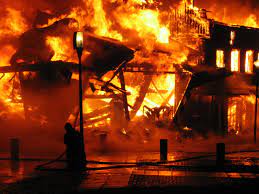Business Interruption Insurance
Need business interruption insurance? If you have an interruption in your business, restart it immediately. To do this, you need money. Business interruption insurance will give you the funds required during the restoration.
Business income insurance can be classified as Business Income & Extra Expense Insurance and Business Loss Income Insurance. This article explains both types of business income insurance and how they may benefit your company’s risk management program to help you deal with disasters, such as fire, flood, or earthquake.
Business Income & Extra Expense Coverage
A business income policy pays for losses because of the damage or destruction of your business property. It only covers losses like money spent on overhead, taxes, and other costs that would not be incurred without the loss. The limits vary by contract; you must read it carefully before buying one.
A “period of restoration” insurance policy can protect you if your business property is damaged. This policy will provide money to restore or replace the equipment you need to resume operations. Period of restoration insurance does not cover lost profits or other indirect losses, like when your business income is interrupted.
Business Loss Income Insurance
This kind of insurance protects a business from losing money if something happens to it. It does not cover physical damage or the company’s closure because of what happened.
This insurance type is sometimes called Actual Loss or sustained Business Income coverage. It is usually purchased in conjunction with property insurance. It can provide protection for up to 12 months, while business income and extra expense coverage only provide protection for 3 months.
Business interruption insurance is when your business can’t operate because of a disaster. For example, if there’s a significant power outage on your street, you may be able to get money for that.
You can file a claim for business insurance anytime within two years of the loss. I think it’s best to tell them about losses as soon as possible so that they have time to investigate and decide what to do with your claim.
Base premium rates are determined using a formula that considers many variables. The main variable is location. For example, premium rates will be higher in an area with more expensive homes or businesses.
Period of Restoration for business interruption insurance
Coordination of Benefits: When there is a business interruption, your company pays for some losses. However, sometimes, you also have losses from other insurance policies. COB provisions let you get full reimbursement without having to file a separate claim with your company and another one with someone else. A person is usually bound to the terms and conditions specified in their insurance policy.
There are different amounts of insurance for business income, and it is important to know what you need. You can get $5,000, $10,000, or $25,000. Typically, business interruption coverage will be paid out once per year. If you want to pay for extra expenses each time they happen, you can buy them separately. You can also get coverage that changes with the seasons and pays for your extra expenses every time.
Additionally, if you have a business at your house, you should get a policy from an insurance company. That way, the cost of repairs will be covered. If you do not get this, losses will be more expensive. So, this is a type of risk that your insurance would not cover. You need to know for sure if you want this policy because it could change the rest of your life. Know what you are getting into before you do it.
Business Income Coverage
There are two types of losses when it comes to your business. The first is when you lose money because of damage (to the property). For example, if you lost $500 and had to pay $400 monthly rent, you would need to buy more insurance. The second type is when there is no damage but there’s a business interruption. That means that people can’t come to your store, house, or restaurant because it was not open for some reason such as weather or a natural disaster. If this happens and your policy doesn’t cover this situation, you will need to buy more insurance from somewhere else. Should something happen to you rendering you unable to work, then your business may not be able to get coverage. The insurance company will not pay for anything unless a bad thing hit it.
Next, the period of restoration (POR) is the amount of time it takes to recover from a loss. It should take as long as necessary but not so long that business does not flow properly. The POR should be specified in writing, and different policies may have different time periods for this.
Property insurance is sometimes added to the cost of a business policy. It protects business buildings, contents, and personal property against perils like fire, lightning, windstorms, and hail. Options to add more coverage for specific types of perils are available.
Perils: Loss of Income Insurance
Perils: The perils named in a business insurance policy are probably the same as those such as fire, windstorms, hail, and so forth. But there are some perils that you might not think of. For example, “internal combustion” covers damage caused by your vehicle or machinery while they are being used for business purposes. Remember that property coverage does not typically include any liability protection. So, you’ll need to purchase this separately from a commercial general liability policy.
Business income insurance usually has a way to include business interruption coverage. However, you must buy it with property or loss-sustained business income coverage. Then, if you have seasonal extra expenses, it can also include business interruption coverage.
If your business loses income for three months, these types of insurance might help. They are similar to homeowner’s coverage in what they cover. However, they are more expensive because there are no perils that make you pay extra for this type of insurance. In addition, some insurers don’t offer this kind of coverage, and some people can only get it for a special event.
1• Business Income Insurance Coverage Form
2• Business Income Insurance Definition
3• A Business Income Insurance Policy
4• Business Income And Extra Expense Coverage Form
5• Business Loss Insurance Definition
6• What Is Business Income Insurance
Losing Business Income
If something happens to your business and you can’t make money, it could not be very good for your company. Moreover, should a fire or an attack like 9-11 were to occur, people wouldn’t be able to work due to premises closures. That means they will make money once the store is fixed and they can open again. They might not have enough savings to cover it, and they would need help from someone else to get back on their feet quickly. This could mean bankruptcy if people help them out with money because there are often limited insurance policies that come with normal insurance policies.
Business interruption insurance covers financial losses that result from interruptions to normal business activities caused by certain listed events such as:
1. Fire
2. Windstorm or hail
3. Explosion
4. Riot or civil commotion
5. Aircraft, vehicle or other transportation damage
6. Breakdown of equipment through no fault of the insured party
While most business insurance policies do come with property coverage, certain risks may not be covered under this policy, including:
1. Power surge damage
2. Water damage, sometimes referred to as flood, water, or seepage damage due to partial submersion in any liquid – for example, if water washes over your business premises from rainfall outside the building. At the same time, it is closed for business during inclement weather conditions. This can result in extensive damage to your assets even if your building’s heating, ventilation, and air conditioning or sprinkler system fails to activate.
Business Income vs. Business Interruption
Business interruption insurance is meant to cover any money you lose due to a covered peril. If there is damage, your company might be unable to work at their usual place. This can include lost income or extra expenses because they must work elsewhere for a while.
The term “business income” can refer to several things depending on the nature of your business, including:
1. Your overall company revenue or income from selling goods and/or services. This amount may be broken down into several factors, such as products sold, number of customers served, etc.
• Business Income Insurance Coverage Form
• Business Loss Insurance Definition
• What Is Business Income Insurance
2. The money you make from your business activities, including wages for employees paid on commission, bonuses, vacation pay, and other benefits workers may derive from their employment status with a firm. Overall yearly revenue determined by the number of hours worked multiplied by an hourly wage rate should also be included if it falls into this category. Some states require that all workers receive a minimum salary regardless of how many hours they work in order to be classified as “full-time”.
• What is business income and extra expense coverage
• business income definition
3. The total amount of money your business makes in a year after all factors such as revenue, salaries, and other expenses have been accounted for. Usually, this number is found on the final page of a company’s tax return. It does not include amounts designated for future commitments or amounts not yet paid out to the owner or shareholders.
• A Business Income Insurance Coverage Form
• Business interruption insurance
An amount representing how much each share you own in a corporation is worth at any given moment, which could be broken up into yearly installments if there are preferred dividends involved with your stock.
Check out some of our other coverage:

